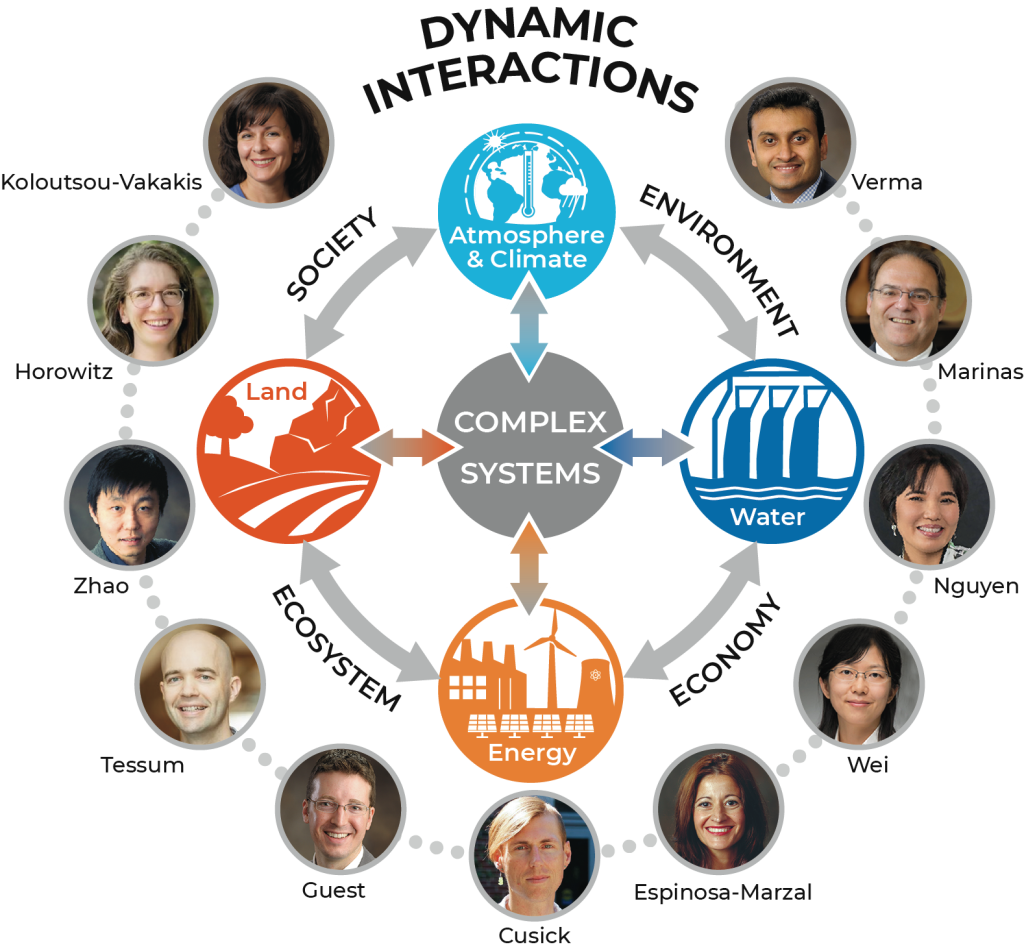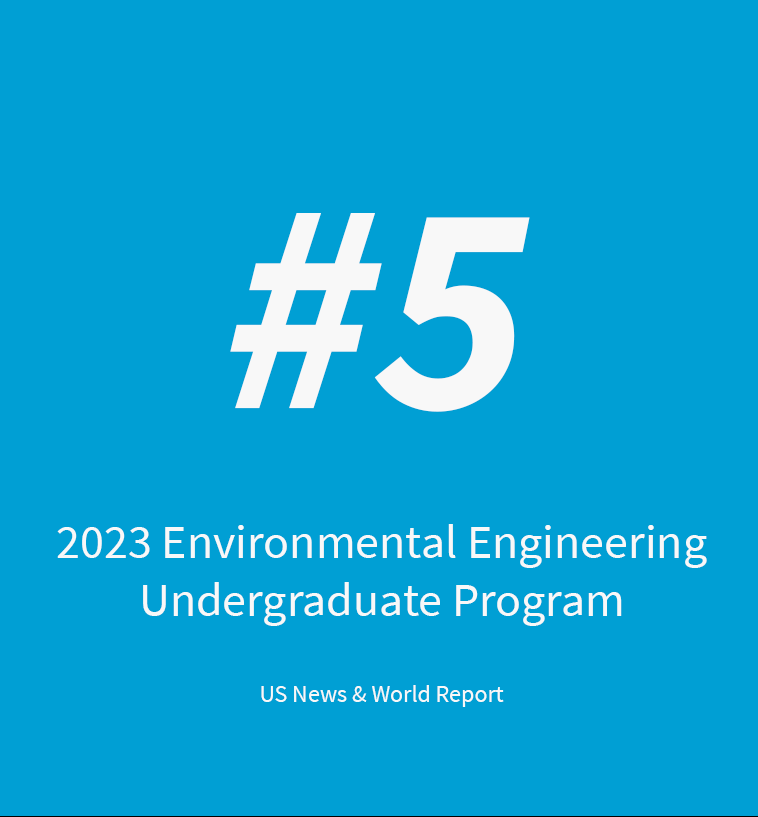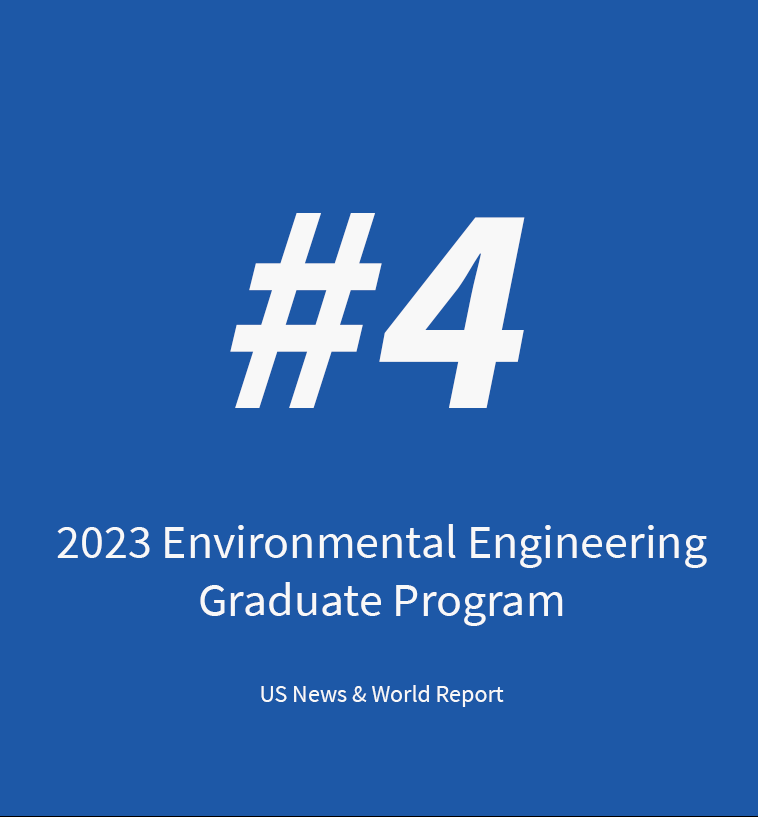Develop expertise in areas of Environmental Engineering ranging from nano/molecular science to systems-level scales with a strong grasp of natural science fundamentals, and robust skills in data science, modeling, and policy.
At-A-Glance
EE&S faculty perform research in atmosphere and climate, water, energy and land, as well as their dynamic interactions. We study grand challenges involving complex systems – with impacts on society, ecosystems, environment and economy.

FAQs
Q. What research is EES working on?
A. Some of our “large” research initiatives focus on areas where our expertise could be merged specifically to address Grand Challenges such as Impacts of Climate Change/Adaptation, Environmental Public Health Engineering, and OneWater Engineering. Our research also focuses on Rural and Urban Sustainability, Food, Water, and Energy in the Context of a Circular Economy, and Carbon Negative Solutions/Green Engineering.
Q. Who funds EES research?
A. Our research groups are funded externally with grants from federal and state governmental agencies, research foundations, and industry, and internally through seed funding programs at the Grainger College of Engineering and Civil and Environmental Engineering Department.
Q. How do I apply for a visiting scholar or post-doc position?
A. The University of Illinois Graduate College provides comprehensive information on their website.
Q. Can I achieve a Masters degree in less than a year?
A. Absolutely, an MS non-thesis or online degree program can be completed in 11 months. The Degrees & Programs tab provides more information.
Q. Can undergraduate students participate in research projects?
A. CEE Research Experiences for Undergraduates (REU) are paid positions that give you the opportunity to actively participate in research and work with faculty, graduate students and other researchers on ongoing projects.
Behind the Rankings


In 2023 UIUC CEE’s Environmental Engineering programs ranked 5th (undergraduate) and 4th (graduate) in the nation based on reputation. The undergraduate program is expected to rise in the rankings as the BS in Environmental Engineering program begins in Fall 2024. What is driving this great success?
STUDENTS: The contributions of our students play a crucial role in achieving and maintaining the success and high rankings of an Environmental Engineering Science program through their active involvement, dedication, innovation, and pursuit of excellence. Environmental engineering science programs benefit from the diverse backgrounds and interests of their student body. Students from different disciplines bring unique perspectives and expertise, enabling cross-pollination of ideas and approaches. Students engage in peer-to-peer learning, where they exchange knowledge, experiences, and insights. This collaborative learning environment promotes critical thinking, problem-solving, and the exploration of new ideas. As students challenge and inspire each other, the overall academic quality of the program improves. Students engage in cutting-edge research projects with faculty members. Their innovative ideas and enthusiasm for exploring new solutions to environmental challenges contribute to the program’s overall reputation. Research findings, publications, and presentations at conferences enhance the program’s visibility and recognition within the academic and professional community. Our students also organize and participate in various outreach activities, workshops, and community engagement initiatives. The students’ dedication to excellence and their commitment to addressing environmental challenges make them indispensable assets in the program’s success.
FACULTY: One of our strengths as a group is that through our complementary expertise, we are ready to solve grand challenges involving complex systems – with impacts on society, ecosystems, environment and economy.
FACILITIES: Environmental Engineering and Science (EE&S) laboratories are fully equipped for a diverse range of research, including air quality, environmental toxicity, water disinfection, water quality, environmental microbiology and genomics, resource recovery, synthetic biology, and hazardous waste remediation. The EES laboratories host shared facilities with a wide range of state-of-the-science analytical equipment, e.g. mass spectroscopy, inductively coupled plasma, ion, liquid and gas chromatography, as well as optical, surface area and organic carbon analyzers. Visit our Research tab for more information.
FUNDING: Our research groups have been awarded funding through a variety of federal and state agencies, and research foundations that include the National Science Foundation (NSF), National Center for Supercomputing Applications (NCSA), National Aeronautics and Space Administration (NASA), National Institute of Food and Agriculture, US Department of Energy (DOE), US Environmental Protection Agency (EPA), Gates Foundation, and the Illinois Institute of Sustainability, Energy, and Environment.
Friends of the Program
The Department of Civil and Environmental Engineering and the Environmental Engineering and Science Program are grateful for the contributions that we have received from many alumni and friends. Resources provided by these gifts support graduate student fellowships, graduate student travel to professional conferences, our very successful Graduate Student Spring Symposium, professorships, special seminars that invite distinguished professionals to our department, large equipment purchases, extensive laboratory renovations, student writing competitions, and other educational activities. Such support allows us to maintain our high-quality program and continue to attract and educate some of the best environmental engineering students in the world. Our quality has been recognized by U.S. News and World Report with consistent rankings of our program as one of the best in the country. Students in our program recognize these contributions as one of the key reasons why we are able to offer high-quality and high-profile educational experiences during their studies at the University of Illinois.